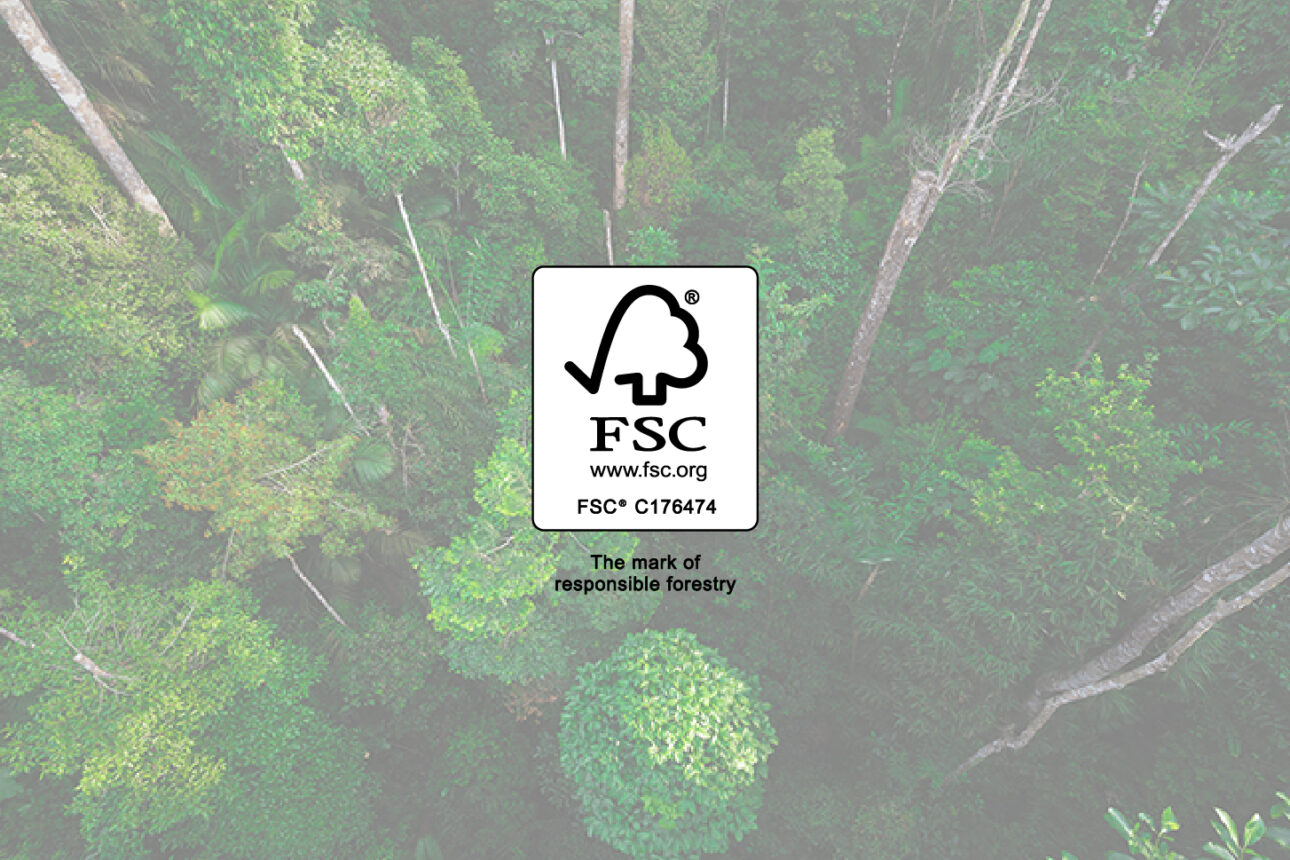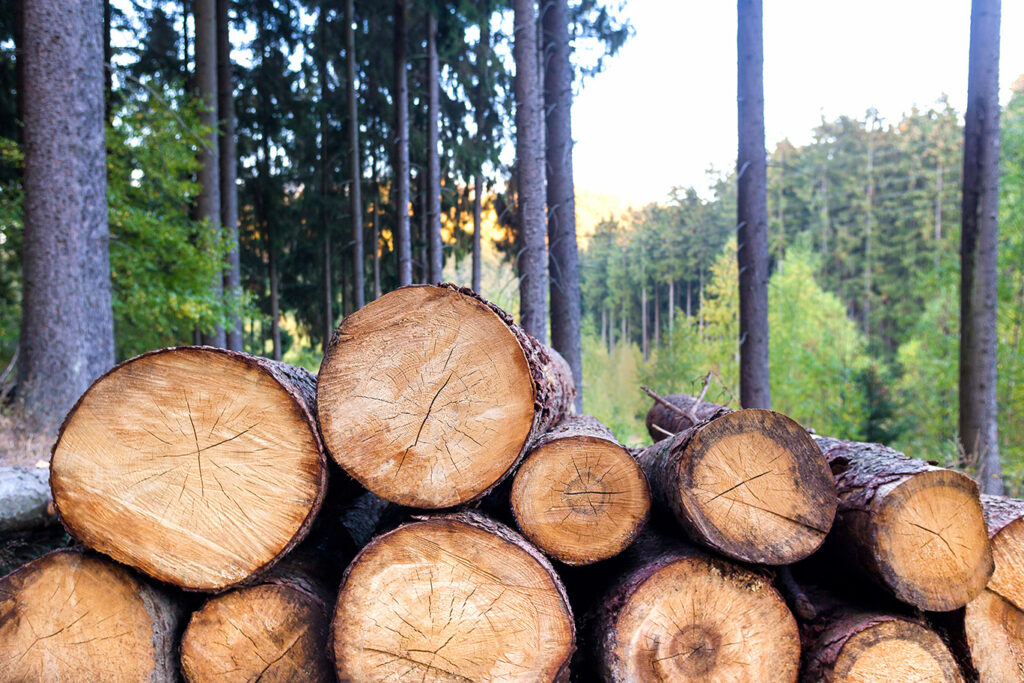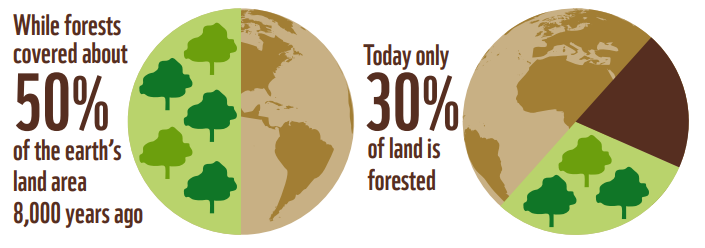
While paper packaging is often considered a sustainable alternative to plastic packaging, due to its biodegradability and recyclability, the production and disposal can have significant environmental impacts.

In addressing the sustainability concerns surrounding paper production, certifications like the Forest Stewardship Council (FSC®) play a crucial role. The FSC certification ensures that paper products originate from responsibly managed forests, promoting the conservation of biodiversity, protection of ecosystems, and respect for indigenous communities’ rights.
The process of making paper involves the harvesting of trees, which can lead to deforestation and habitat destruction, disrupting ecosystems and contributing to biodiversity loss. Today, only 30% of land is forested, compared to 50% 8,000 years ago. It is estimated that wood products, including paper and cardboard, account for about 10% of total global deforestation. Additionally, the bleaching and chemical treatments used in paper and cardboard production can result in water and air pollution, harming both local communities and wildlife.

The transportation of raw materials and finished products adds to carbon emissions and energy consumption. While recycling paper can mitigate some of these issues, it still requires energy and resources and not all paper packaging is easily recyclable due to coatings or contamination. Therefore, while paper is often viewed as a sustainable alternative to plastic this is not always the case due to its complex supply chain and environmental footprint.
By following FSC standards, companies commit to sustainable forestry practices, including limiting clear-cutting, protecting sensitive areas, and promoting the regeneration of forests. FSC-certified products often undergo stricter environmental criteria throughout their production, such as reduced chemical usage and efficient energy management. A study on FSC certification in the Congo Basin found in the period between 2000 and 2010, deforestation was 74% lower in concessions with a management plan compared to those without. This was associated with actions such as closing logging roads to limit illegal timber harvesting.
Businesses can contribute to sustainability by choosing FSC-certified packaging, thus supporting responsible forest management and mitigating the environmental impacts associated with conventional paper production. While FSC certification is not without its challenges and limitations, it is a significant step towards ensuring that paper consumption aligns with sustainability goals.
It’s important to recognise that certification alone does not address all environmental concerns associated with paper products. Efforts to reduce overall packaging consumption and improve recycling infrastructure remain essential. This can be achieved by minimising packaging usage which can aid waste reduction and reduce costs. Likewise, printing On-Pack-Recycling-Labels (OPRL) is beneficial in informing consumers about the recyclability of packaging. It aims to encourage recycling and promote responsible disposal practices amongst customers.
Please get in touch if you’d like to make the transition to FSC certified packaging and include appropriate OPRL logos.